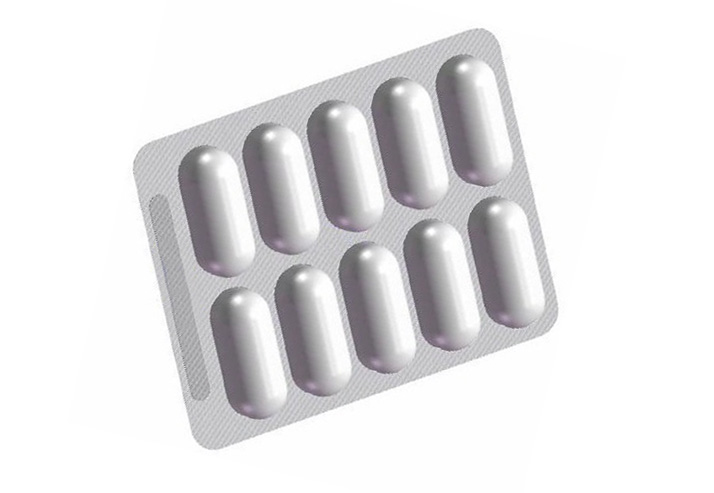Omnicef
Omnicef is the brand name for a medication called Cefdinir. It is an antibiotic that belongs to the class of drugs known as cephalosporins. Cefdinir is primarily used to treat various bacterial infections.
Antibiotic is effective against a wide range of bacteria, including respiratory tract infections, such as sinusitis and bronchitis, as well as skin and soft tissue infections. It is also used to treat certain types of middle ear infections in children.
This medication is available in the form of capsules or oral suspension and is typically taken orally.
Cefdinir works by interfering with the cell wall synthesis of bacteria, which is essential for their growth and survival. By inhibiting this process, Cefdinir helps to eliminate the bacteria and clear the infection.
Dosage
The following dosage guidelines are generally recommended:
For adults and children 13 years and older:
- The usual recommended dose is 300 mg taken orally twice daily or 600 mg once daily, depending on the severity of the infection.
For children 6 months to 12 years old:
- The dosage is based on the child's weight. The typical recommended dose is 7 mg/kg of body weight, taken orally twice daily or 14 mg/kg once daily.
How to Take
When taking Omnicef, it is important to follow these guidelines:
- Follow the instructions on the prescription label carefully.
- Medicament can be taken with or without food. If it upsets your stomach, you may take it with food to help alleviate any discomfort.
- Use the measuring device provided with the medication to ensure accurate dosing. Do not use a regular household spoon as it may not measure the correct amount.
- Swallow the capsules or tablets whole with a full glass of water. Do not crush, chew, or break capsules.
- If you are taking the oral suspension (liquid) form of Omnicef, shake the bottle well before measuring the dose. Use a measuring spoon or syringe to accurately measure the prescribed amount.
- Take Omnicef at evenly spaced intervals to maintain a consistent level of the medication in your body. It is typically taken twice daily, approximately 12 hours apart.
- Continue taking the full course of Omnicef as prescribed, even if you start feeling better. Stopping the medication too early may allow the infection to return or worsen.
- If you forget to take a dose, take it as soon as you remember. However, if it is close to the time for your next scheduled dose, skip the missed dose and resume your regular dosing schedule. Do not double the dose to make up for a missed one.
Contraindications of Omnicef
There are many conditions in which you must not take Omnicef. Do not take Omnicef if:
- You are allergic to cefdinir or any other antibiotic like cefzil, cefaclor, cefpodoxime, cephradine, ceftin, keflex, cefazolin, cefadroxil, ceftibuten, cephalexin, cefuroxime, cefditoren, etc.
- Do not use it if you are allergic to penicillin. It may lead to severe side- effects.

Omnicef is a safe drug, but to ensure its safety, you must inform your doctor if you have:
- A history of any intestinal diseases like colitis
- Any kidney disease
- If you are undergoing dialysis
- If you have drug allergy, e.g., penicillin
Interactions
Omnicef may interact with certain medications, substances, or medical conditions. Here are some known interactions with this drug:
- Antacids containing magnesium or aluminum: Taking antacids with Cefdinir can reduce its absorption in the body. It is recommended to take antacids at least 2 hours before or after taking capsules.
- Iron supplements: Omnicef may decrease the absorption of iron supplements. It is advisable to take iron supplements at least 2 hours before or after taking capsules.
- Probenecid: Probenecid can increase the levels of Omnicef in the body by reducing its elimination.
- Warfarin or other blood thinners: Pharmaceutical product may enhance the effects of blood thinners, increasing the risk of bleeding.
- Live bacterial vaccines: Medicament may interfere with the effectiveness of live bacterial vaccines.
- Diarrhea medications: Omnicef can alter the effectiveness of medications used to treat diarrhea, such as loperamide.
- Kidney disease: If you have kidney disease, you may need to adjust your Omnicef dosage or monitor your kidney function more closely.
Warnings
When taking Omnicef, there are several important warnings and precautions to be aware of. Here are some key warnings associated with Omnicef:
- Allergic reactions: Allergic reactions to Omnicef can range from mild to severe and may include rash, itching, swelling, or difficulty breathing. Seek immediate medical attention if you experience any signs of an allergic reaction.
- Serious diarrhea: Drug can sometimes cause a severe form of diarrhea called Clostridium difficile-associated diarrhea (CDAD). It may occur during or after treatment, and its symptoms can range from mild to life-threatening.
- Resistance and superinfection: Prolonged or inappropriate use of antibiotics can lead to the development of bacterial resistance. It is essential to take Omnicef as prescribed and only for the recommended duration. In some cases, new infections may occur during treatment due to resistant bacteria or fungal overgrowth.
- Kidney function: If you have impaired kidney function, you may need to adjust your Omnicef dosage or closely monitor your kidney function during treatment.
- Interactions with laboratory tests: Cefdinir may interfere with certain laboratory tests, such as urine glucose tests.
Omnicef and Alcohol
It is generally recommended to avoid consuming alcohol while taking Omnicef. While there is no direct interaction between Cefdinir and alcohol that would cause a dangerous reaction, combining alcohol with antibiotics can potentially worsen certain side effects and affect the overall effectiveness of the medication. Here are some reasons to avoid alcohol:
- Increased risk of side effects: Alcohol can increase the likelihood and severity of certain side effects associated with Omnicef, such as gastrointestinal symptoms (nausea, vomiting, diarrhea), dizziness, and drowsiness. Drinking alcohol can intensify these effects and make you feel more unwell.
- Interference with the immune system: Alcohol can weaken the immune system, impairing its ability to fight off infections. Since Omnicef is prescribed to treat bacterial infections, it is important to give your immune system the best chance to work effectively by avoiding alcohol.
- Potential liver strain: Both Omnicef and alcohol can put a strain on the liver. Combining the two may increase the risk of liver damage or impair the liver's ability to process the medication properly.
- Drug metabolism: Alcohol can affect the metabolism and elimination of medications in the body. It may interfere with the breakdown of Omnicef, potentially altering its effectiveness and increasing the risk of adverse reactions.
To ensure the best possible outcome and minimize potential risks, it is advisable to refrain from consuming alcohol while taking this drug.
Pregnancy and Omnicef
Cefdinir is not known to do any harm to a pregnant lady or to the unborn baby. But, to stay on a safer side, you must inform your physician if you are loaded with a baby or planning to have a baby during the course of taking Omnicef.
It is also not known if Omnicef passes into the breast milk and harms the nursing baby. But, you are adviced not to take Omnicef if you are a nursing mother.
Side Effects of Omnicef
There are a few side effects attached to Cefdinir. Some side effects are not very serious. These side effects resolve on their own. They do need any sort of medical attention. They are:
- Nausea
- Vomiting
- Vaginal itching or discharge
- Headache

There are a few serious side effects attached to Omnicef. These side effects need a strict medical attention. They are:
- Allergic reactions manifesting as hives, difficulty in breathing and swelling on face, throat, lips and tongue.
- Watery and bloody diarrhea
- Pain in chest
- Seizure (convulsion)
- Unusual bleeding
- Dark colored urine
- Yellow or pale skin
- Flu symptoms
- Chills
- Body aches
- Fever
- Weakness or confusion
- Jaundice
- Sore throat
- Red skin rash
- Blistering and peeling of skin
- Loss of appetite
- Weight gain
- Short breath



